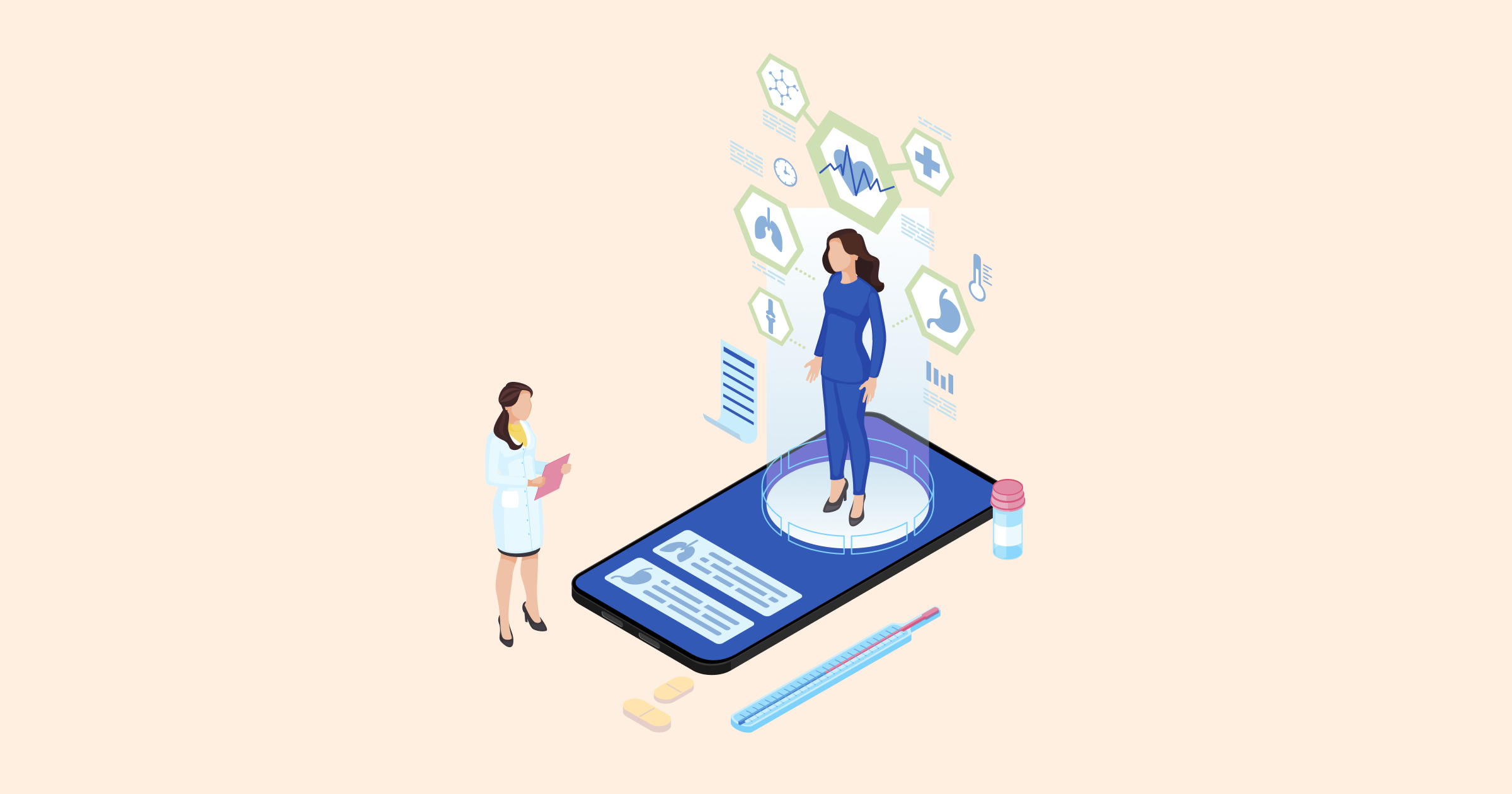AI is silently transforming healthcare, making medical treatments faster, smarter, and more efficient. Especially for the healthcare industry, is immense. Imagine a world where diseases are identified before symptoms appear, where virtual assistants guide patients through treatments, and where doctors make life-saving decisions with the help of none other than artificial intelligence algorithms.
Yes, we are not in a science fiction world; it’s the reality that AI is creating in healthcare today. From diagnosing illnesses with pinpoint accuracy to personalizing patient care, AI-powered mobile apps are revolutionizing the way we experience medicine.
This blog gives you a clear-cut understanding of how the mobile application lives in the life of patients and we, the doctors, and meet their requirements with the help of AI.
What are the AI Applications for Patients?
The patients get the privilege to empower themselves with the AI-powered application at their right front in their hands. With the help of applications, life becomes easier and stress-free. The application will improve in all aspects of the few important areas of guidance by AI, which are self-care, disease management, and providing real-time medical guidance.
AI Chatbots for Symptom Analysis
There are more mobile apps that use AI algorithms to analyze symptoms and provide basic diagnoses. By asking a greater number of questions, these chatbots get an understanding of the patients and give suggestions before seeking professional medical advice.
Virtual Health Assistants
AI-powered assistants help patients book appointments, set medication reminders, and track health records. This gradually reduces the manual work for the organization.
AI-Powered Mental Health Apps
Mental wellness applications use AI-driven cognitive behavioral therapy techniques to assist users in managing stress, anxiety, and depression, which is highly necessary for patients who are sick with any kind of illness. These chatbots provide guided exercises and emotional support at the right time.
AI-Based Wearable Health Monitors
Wearable Devices help users track heart rate, sleep patterns, and physical activity. This kind of device makes the user always be conscious of their health and get to know updates then and there. This all together brings awareness for the device users, and the necessary actions can be taken for further improvement.
AI-Powered Personalized Nutrition and Fitness Apps
Apps for nutrition and fitness are highly essential. This AI app provides customized diet plans and exercise recommendations based on an individual’s metabolism and activity levels. This helps the user to understand the overall health state of them.
What are the AI Applications for Doctors?
AI-driven applications also play a significant role in assisting doctors by enhancing diagnostic accuracy, automating administrative tasks, and optimizing treatment plans. Here are a few of the most valuable AI applications that benefit healthcare professionals.
AI-Powered Medical Imaging and Diagnosis
AI-based tools analyze medical images, including X-rays, MRIs, and CT scans, to detect diseases such as cancer, fractures, and neurological disorders with high accuracy.
AI-Based Electronic Health Record Management
AI helps to align the medical documentation and patient record management. This platform has the facility of voice recognition, which transcribes and organizes patient records efficiently; this gives the user clarity.
AI-Driven Drug Discovery and Treatment Recommendations
AI applications which are highly beneficial for doctors to identify potential drug candidates, and this accelerates the drug development process. Additionally, AI-powered platforms suggest personalized treatment plans based on a patient’s medical history. This advantage helps the doctors to understand the exact scenario of the patient.
AI-Powered Predictive Analytics for Disease Prevention
Predictive analytics tools help to analyze patient data to detect early signs of diseases such as diabetes, heart disease, and sepsis. This enables doctors to intervene before conditions worsen, though this AI-powered tool can save most of the patient’s life, and the severity can be predicted beforehand.
AI-Enabled Robotic Surgery Assistance
Robot-assisted surgery uses AI to help doctors perform operations with maximum accuracy and control. These systems provide a clear view of the surgical area and use robotic arms that move like a surgeon’s hands but with more accuracy and control. Since the incisions are smaller, patients will experience less pain, faster recovery, and a lower risk of complications, making surgeries safer and more effective.
Benefits of AI-Powered Healthcare Apps
AI in healthcare for patients
Quick and Accessible Healthcare – AI chatbots and virtual assistants reduce your waiting times and provide instant medical guidance.
Personalized Care – AI-driven apps offer customized treatment plans, diet recommendations, and mental health support particularly designed to meet individual needs.
Early Disease Detection – Wearable AI devices monitor vital signs and detect early symptoms of possible health risks.
AI in healthcare for Doctors
Improved Diagnostic Accuracy – AI-powered imaging tools enhance disease detection, and this reduces diagnostic error.
Efficient Workflow Management – AI automates administrative tasks, allowing the doctors to focus more on patient care.
Better Treatment Planning – AI assists in developing personalized treatment strategies based on huge medical datasets.
Conclusion
As AI technology is getting advanced day by day, we can expect even more tremendous changes in healthcare. From AI-assisted remote surgeries to fully diagnostic systems, the future holds the maximum potential. AI-powered mobile apps will continue to evolve. The leading healthcare app development company in Chennai will make healthcare more accessible, affordable, and efficient for everyone.
The adoption of AI in healthcare is not just a trend but a necessity for improving patient care and in the field of medicine as well. By upgrading AI-powered applications, both patients and doctors can experience a smarter and more effective healthcare system.
